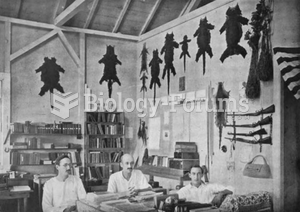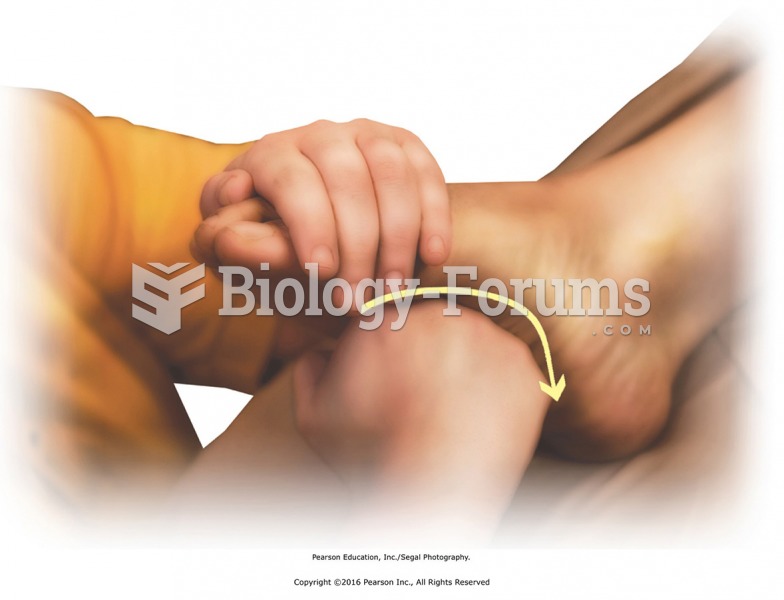|
|
|
Giardia is one of the most common intestinal parasites worldwide, and infects up to 20% of the world population, mostly in poorer countries with inadequate sanitation. Infections are most common in children, though chronic Giardia is more common in adults.
Aspirin is the most widely used drug in the world. It has even been recognized as such by the Guinness Book of World Records.
Less than one of every three adults with high LDL cholesterol has the condition under control. Only 48.1% with the condition are being treated for it.
Long-term mental and physical effects from substance abuse include: paranoia, psychosis, immune deficiencies, and organ damage.
Blood in the urine can be a sign of a kidney stone, glomerulonephritis, or other kidney problems.
 Vital signs for clients in metabolic alkalosis may reveal hypotension, bradycardia, and an irregular
Vital signs for clients in metabolic alkalosis may reveal hypotension, bradycardia, and an irregular
 Daniel Burnham’s Flatiron Building (1902) was one of the first to use steel girders to hold up the b
Daniel Burnham’s Flatiron Building (1902) was one of the first to use steel girders to hold up the b





